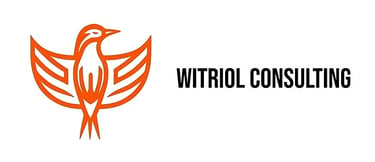Why You’re Losing Federal Contracts — and How to Fix It Fast
Winning federal contracts is not just about having the lowest bid or the most technical know-how. Many businesses — even highly qualified ones — lose contract after contract without understanding why. If you're frustrated by rejection notices or poor evaluation feedback, you're not alone. This blog breaks down why capable firms fail to win federal contracts — and how to fix it with practical, actionable steps. Whether you're a seasoned prime or an emerging small business, these insights will improve your bid strategy, evaluation scores, and win rate (PWIN).
EQMENTORORGANIZATIONTRADITIONAL ECONOMYMANAGEMENT CONSULTINGSTRATEGIC PARTNERSHIPSMERGERSMARKET ECONOMY8(A)CONSULTINGPARTNERSHIPSGROWTHACQUISITIONSLEADERSHIPSTRATEGYSUSTAINABLE GROWTHECONOMICSFEDERAL CONTRACTINGGOVERNMENT CONTRACTSMIXED ECONOMYMARKETING STRATEGY
Shaun Witriol
5/10/20253 min read


Why You’re Losing Federal Contracts — and How to Fix It Fast
Hint: It’s not just your price.
Winning federal contracts is not just about having the lowest bid or the most technical know-how. Many businesses — even highly qualified ones — lose contract after contract without understanding why. If you're frustrated by rejection notices or poor evaluation feedback, you're not alone.
This blog breaks down why capable firms fail to win federal contracts — and how to fix it with practical, actionable steps. Whether you're a seasoned prime or an emerging small business, these insights will improve your bid strategy, evaluation scores, and win rate (PWIN).
🚩 Common Reasons You’re Losing Federal Contracts
1. Your Proposal Doesn’t Clearly Answer the “How”
Agencies don’t just want to know what you’ll do — they want to know how you’ll do it. A proposal filled with buzzwords, vague promises, or copied boilerplate won’t earn you evaluation points.
✅ Fix It:
Break down your methodology into step-by-step processes.
Use plain language backed by technical detail.
Provide visuals: Gantt charts, process flows, or RACI matrices.
Align your solution directly with the performance work statement (PWS) or statement of objectives (SOO).
2. You’re Underestimating the Importance of Past Performance
Even if you have the technical chops, weak or misaligned past performance records can tank your bid. Evaluators want confidence that you’ve done similar work at similar scale.
✅ Fix It:
Tailor your past performance references to match scope, scale, and mission of the RFP.
Proactively shape past performance by pursuing smaller, aligned contracts first.
Request CPARS reviews and keep them positive — they carry weight in evaluations.
3. Your Teaming Partners Don’t Add Strategic Value
Large teams aren’t always better. Adding teaming partners just to “check a box” or inflate your capabilities without synergy can hurt your evaluation.
✅ Fix It:
Choose partners that complement your gaps in capabilities or past performance.
Clearly define each partner’s role in your proposal — evaluators want clarity, not clutter.
Demonstrate experience working together if possible.
4. You Miss Technical or Compliance Details
Failure to follow instructions is one of the fastest ways to lose. Missing page limits, incorrect font sizes, or unaddressed evaluation factors can result in disqualification — even for great solutions.
✅ Fix It:
Use a compliance matrix before writing anything.
Review every section against the RFP requirements (volume, format, sections, attachments).
Assign a “color team” or outside reviewer to conduct red team reviews with fresh eyes.
5. You Price Too High — or Too Low
You don’t have to be the cheapest bidder. But you do need to be realistic. Unrealistic pricing raises risk flags and can get you knocked out in a price realism review — especially in Lowest Price Technically Acceptable (LPTA) awards.
✅ Fix It:
Benchmark pricing against similar awards (use FPDS or GovWin).
Understand cost realism vs. price competition requirements in the RFP.
Invest in a strong pricing lead or pricing consultant to align cost with value.
💡 How to Start Winning: A Federal Contracting Success Checklist
If you want to move from “bid and hope” to “strategic pursuit,” here are key steps:
✔ Rebuild Your Proposal Process
Stop rushing proposals at the last minute. Create repeatable systems for proposal planning, color team reviews, and compliance tracking.
✔ Know Your Buyer
Understand the agency’s mission, priorities, and buying patterns. Tailor your technical approach to their language, not just yours.
✔ Target the Right Opportunities
Focus on RFPs where you bring a competitive edge. Be honest about where you can win, and don’t waste resources chasing poor-fit opportunities.
✔ Sharpen Your Value Proposition
What makes you different? Go beyond your NAICS code and highlight your mission understanding, past results, and cultural alignment with the agency.
✔ Get Expert Support
If proposal development isn’t your core strength, invest in proposal writers, solution architects, or federal business development consultants who can help elevate your bid.
📊 Quick Tips to Boost Your PWIN (Probability of Win)
Build capture plans 6–12 months before the RFP drops
Engage early with contracting officers and program managers
Map evaluation criteria to your proposal structure
Track and improve your CPARS ratings
Use teaming agreements strategically, not reactively
Treat debriefings as intel — not failures
🚀 Call to Action: Let Witriol Consulting Help You Win More
At Witriol Consulting, we specialize in helping small and mid-sized firms break through the barriers of federal contracting. Whether you’re struggling with proposal development, compliance, or strategic positioning — we can help.
We offer:
✅ Capture and proposal support
✅ Federal Salesforce and digital transformation expertise
✅ Construction and program management services
✅ Small Business Enterprise (SBE) teaming partnerships
Ready to improve your win rate and start landing more contracts?
Like and follow Witriol Consulting on LinkedIn, Instagram, Facebook, and YouTube for more insights and strategies on effective leadership and time management.
Current Certifications
Small Local Business Enterprise (SLBE) - (San Diego)
Local Small Business Enterprise - (LSBE) - (Los Angeles)
Minority Owned Business (MBE) - (San Diego and Los Angeles, Federal)
Small Business (Micro) - (California)
Disadvantaged Business Enterprise - (California, Arizona, Oregon, Hawaii)
Small Disadvantaged Business - (Federal)
Asian Pacific Business Enterprise - (Federal)
Pending Certifications
8a - (Federal)
© 2024. All rights reserved.


certifications
consultations
